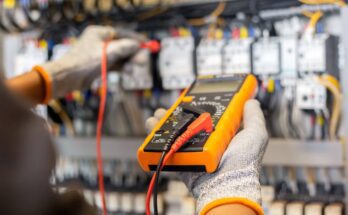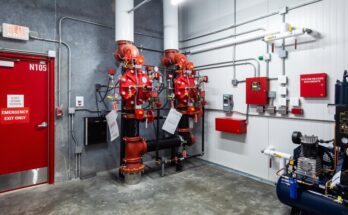Digitization trends have significantly influenced the industrial sector in recent decades, resulting in more efficient manufacturing processes. In large part, this can be attributed to developments in artificial intelligence, machine learning, and digital networks that enable the connection between information, processes, and people.
Manufacturers must streamline all aspects of their value chains to facilitate a smooth production process. Their primary objective should be to ensure flawless communication channels between customers, suppliers, and internal departments. Barcodes can connect digital data to physical objects and facilitate effective communication between all parties involved in the manufacturing process. This article will discuss the importance and benefits of using barcode scanners in the manufacturing process.
The Importance of Implementing a Barcode System in Manufacturing Businesses
A thoroughly optimized manufacturing process is based on real-time data exchange, transforming products and equipment into parts of the process. Production and distribution processes require reliable information about them at all points since every error can result in a loss of productivity, quality, or revenue.
Many manufacturers still enter data manually, which may result in errors or low-quality manufacturing data. According to IBM, poor data quality can cost businesses almost $10 million annually, so manufacturing organizations must do everything possible to eliminate these errors. One of the ways to do so is by using industrial barcode scanners. There are several ways in which the manufacturing department of a business can benefit from barcode technology, some of which are mentioned below.
Improves Time Management
Barcode scanners are a more convenient alternative to manual data entry due to their ease of use. The use of barcodes not only provides faster processing time but also allows individual tracking of shipments. Each individual component of the shipment is easily scanned, allowing the user to gauge whether all the necessary components have been included.
A barcode can be used to determine which equipment can be transported with the minimum amount of downtime between work sites when machinery or supplies need to be moved. Additionally, barcodes are helpful for tracking and pinpointing precise locations along complex supply lines.
Ultimately, employees will be able to spend more time on activities that generate income due to the time they save with barcode-based tracking systems. This will also allow businesses to reduce the personnel required to perform all of these tasks.
Ensures Everything Is Traceable
As products move between organizations or across a supply chain, it is vital for organizations to be able to track their locations. Knowing the location of products, where they are heading, and how they got there can be valuable information. The use of barcode scanners makes it possible to keep track of raw materials or products by their barcodes. A product’s history and information can be viewed on demand by scanning a barcode.
A product’s traceability is also essential in the event of a recall. Whenever there is a complaint about a specific item, barcodes can be used to determine where it originated. There are already many challenges associated with recalling products without looking for any additional errors — a simple barcode scan can significantly improve product tracing.
Increases Revenue
The number of units produced and shipped heavily influences revenue. When each step of this process is refined, productivity increases and expenditures are reduced. Due to the low prevalence of barcode errors, they are statistically insignificant, which makes them a highly effective tool for tracking almost anything.
Due to the near-perfect accuracy of shipments and equipment delivery because of barcodes, clients are more likely to be satisfied, which translates into fewer returns and greater loyalty.
Moreover, barcodes present a valuable opportunity to enhance operations. Given barcodes facilitate easier and more accurate data collection, less time is spent entering data and resolving errors. Therefore, more time is spent achieving operational efficiency in other areas. This results in significant revenue increases and savings.
Cost-Efficient in the Long Run
The initial costs of setting up a barcode scanning system could be high, and there will undoubtedly be a learning curve afterward. However, money will be saved in the long run if a system is implemented properly. An individual makes an average of one error every 300 keystrokes, while barcode scanners make one mistake every million attempts. No expert is needed to understand that barcodes can help you save both time and money.
Besides saving money by eliminating mistakes, barcodes can also increase production for a company. Even if you save only a few seconds by scanning one barcode, those seconds add up over time. As a result of a well-organized warehouse, things will run more smoothly.
Reduces Training Time
New employees will often have an easier time learning manufacturing processes that use bar coding since the technology simplifies and clarifies manufacturing processes, best practices, and operating procedures. Putting barcoding into action requires standardization of operations, which is one of its biggest advantages.
Streamlines the Manufacturing Cycle
Barcode technology results in the most accurate and efficient data collection, allowing you to utilize your inventory and human resources. It will no longer be necessary to depend on individual managers to collect data according to their schedules and methods. Using this data, it could be possible to introduce processes in the manufacturing cycle that would accelerate the cycle and make it more efficient.
Besides, manufacturing department managers can benefit from implementing a standardization process to ensure they can plan and control their work more efficiently.
Wrapping Up
Barcode scanning has become an essential part of enterprise operations today, and it will only grow in importance and popularity in the years to come.
For manufacturing, it is essential to have a comprehensive barcode tracking system that will meet the industry’s unique requirements. Considering the volume of supplies, equipment, and materials used in manufacturing, barcodes are a particularly effective identification method. By using barcodes, it is possible to reduce the amount of time spent on common activities, such as inventory management and shipping, thereby increasing operational efficiency.
This small investment will provide the company with a rapid return on investment by improving inventory control and providing real-time data access.



